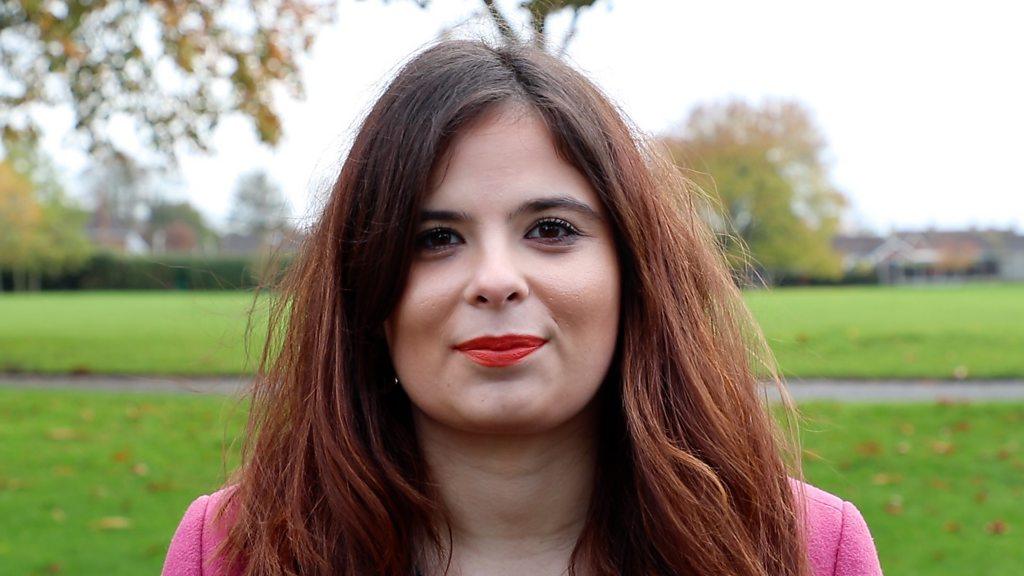Coronavirus: 'Long Covid prevents me from taking a shower'
- Published
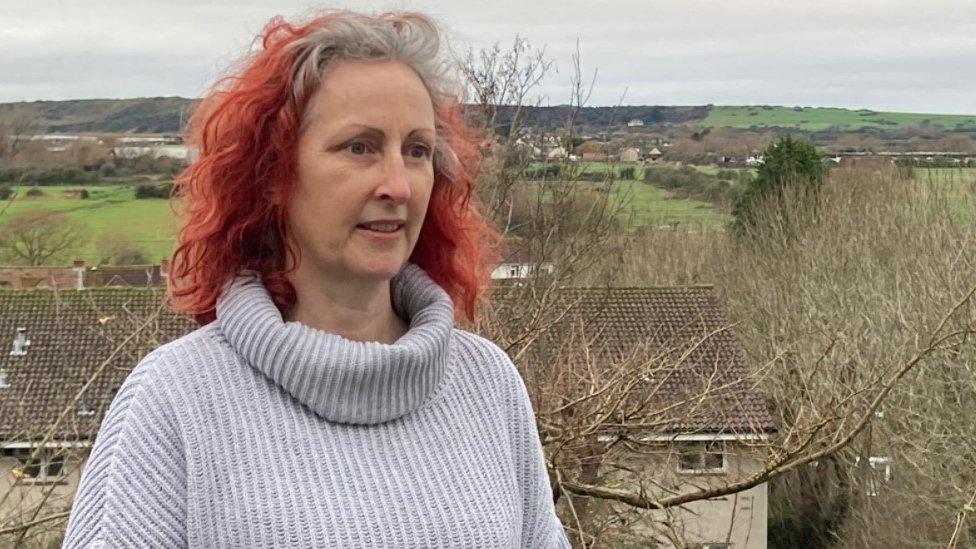
Sam Munslow says "Long Covid" makes her life a challenge eight months after contracting Covid-19
A woman who contracted Covid-19 in April says she is still unable to take a shower or put make-up on due to the long-term effects of the virus.
Sam Munslow from Weston-super-Mare said so-called Long Covid still caused "strange symptoms" - including having hypersensitive skin - which makes her life a challenge eight months later.
Mrs Munslow has written a book about her experiences to help others.
Scientists are only starting to understand the long-term problems.
The 48-year-old life coach said when she first contracted Covid-19, her oxygen was so low, doctors wanted to admit her to hospital where they said she would be intubated for 30 days.
However, she refused and stayed at home with her husband checking on her through the night.
The mother of four said she could not remember much from the period she was at her most poorly, except for the reaction from her husband and children.
"The bit that I remember is the look on my family's faces," she said.
"I didn't want to see my family going through that - the helpless look on their faces,. That was the hard bit."
She said her recovery was slow and it took her two months before she was even able to stay awake throughout the day.

The mother of four contracted Covid-19 in April
She said months later the long-term effects of the virus meant she had low immunity, which had caused unexpected abnormalities.
She said: "It's a range of strange symptoms that don't seem to relate to the original virus.
"I'm left with an uncertainty every morning of how I'm going to be.
"I have still got the chestiness and the persistent cough but I have things like palpitations. My skin is hypersensitive so I can't shower. I can't dye my hair. I can't wear makeup.
"My body sees it as a toxin, and I come out in a huge rash.
"The breathlessness is like a form of anaphylactic shock. It's just not worth it."
She said she was also unable to tell if a room temperature was hot or cold and was chronically fatigued to the point she could now barely walk to the bottom of her garden to feed her chickens.
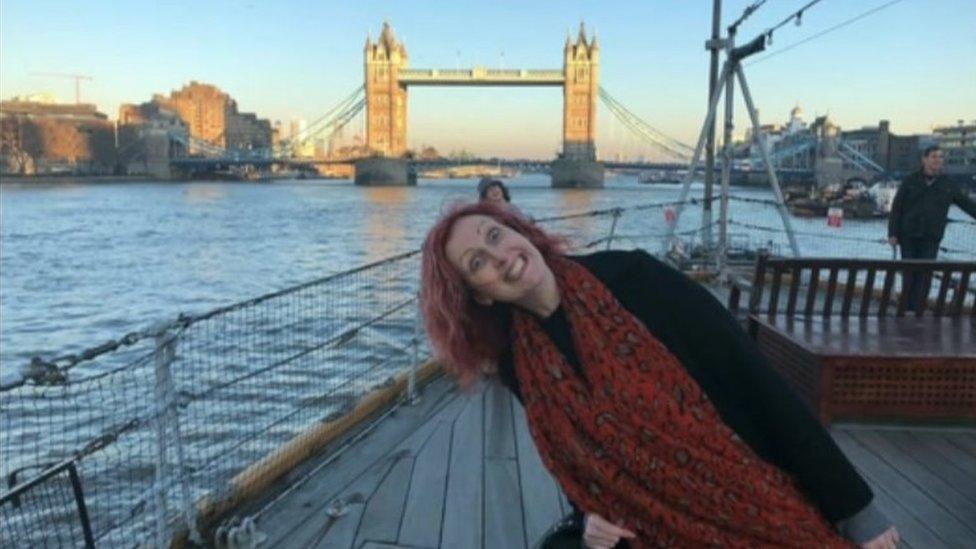
Once fit and active, Mrs Munslow is now chronically fatigued
"That's been a tough one to get used to," she said.
"I have previously been very active and now I don't know when I wake up if I'm going to have an active day or a resting day. And it would bring me down mentally."
She said the advice she would give other Long Covid suffers was simply "don't fight it".
"That was my big thing - when I stopped being frustrated about who I used to be and fighting where I currently am. It was a lot easier - letting go of who I think I should be.
"So it's living in the now instead of focusing on how I used to be or wishing I could be someone else."

Figures from the Office for National Statistics, external published last week put the number of people with Long Covid in the UK at more than 150,000.
The ONS suggests one in 10 people who tested positive for Covid-19 in a household survey still had symptoms 12 weeks later - but this is still experimental.
Long Covid presents as a range of different symptoms suffered by people weeks or months after being infected, some of whom had not been very ill with the initial virus.
Fatigue is the most common problem, but breathlessness, a cough that will not go away, hearing and eyesight problems, headaches and loss of smell and taste have all been reported.
Dr David Arnold, from Southmead Hospital in Bristol, is studying more than 100 people who were in hospital with Covid-19 to see how it has affected them in the long-term.
He said: "We found that at three months, around three-quarters of people were still having ongoing symptoms from the coronavirus - things like fatigue and shortness of breath and muscle aches, and many, many more."
'Odd sensations'
Of Mrs Munslow's symptoms, Dr Arnold said: "Palpitations are very, very common and we often find that people who previously perceive themselves to be very, very fit really struggle to do things like walk up the stairs.
'Skin rashes and odd sensations are also common."
Dr Arnold said he and his colleagues were looking at how some sufferers' immune systems were still reacting to the virus many months on.
However, he said it was too early to tell if a cure or treatment for the condition would arrive soon.
In the meantime, Mrs Munslow, said she was looking forward to spending Christmas with her family, and looking ahead to the new year.
She has written a book called We Will Covive, based on her own experiences, to help and inspire others also experiencing the long-term effects of the virus.
"I'd like my book to get out there and help people," she said.

Follow BBC West on Facebook, external, Twitter, external and Instagram, external. Send your story ideas to: bristol@bbc.co.uk , external
Related topics
- Published18 December 2020
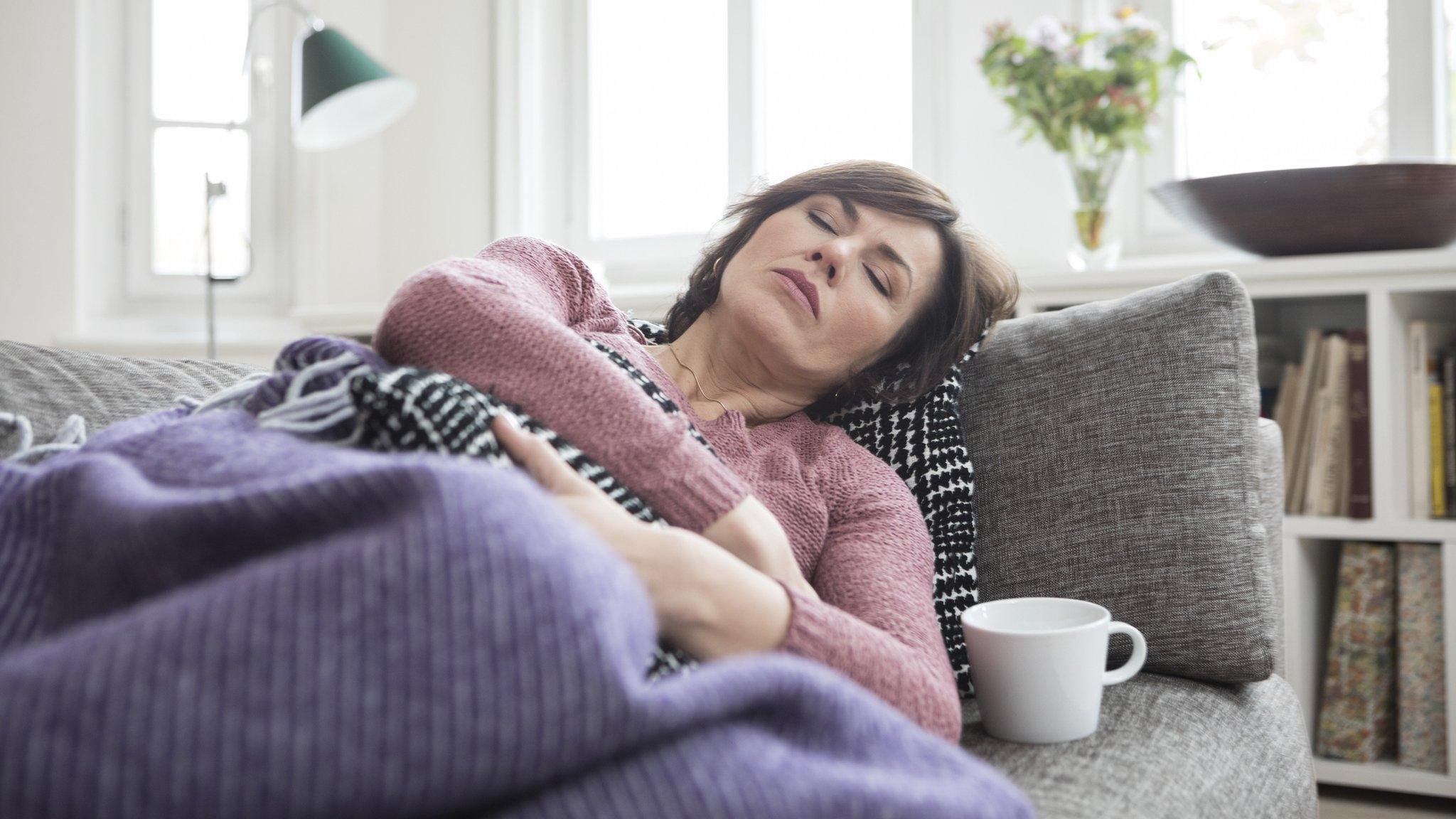
- Published16 December 2020
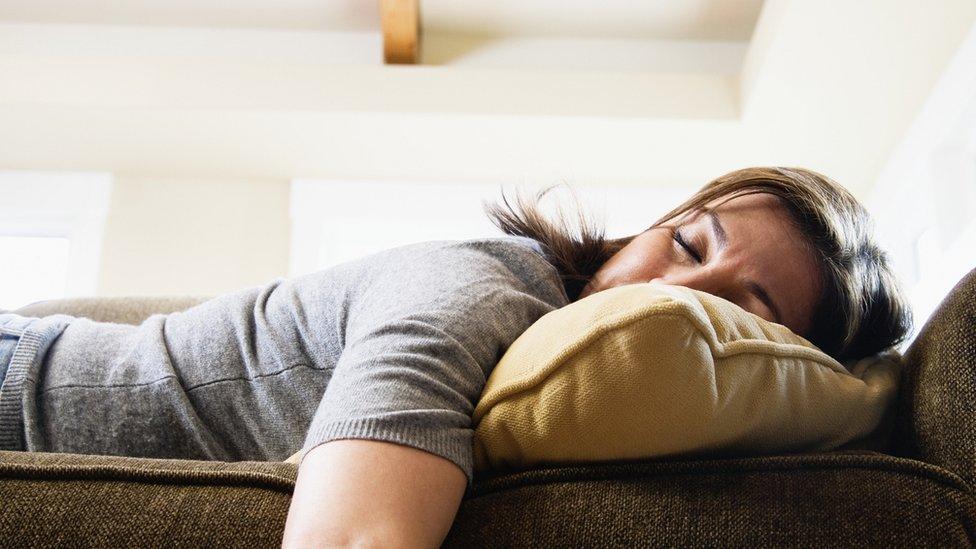
- Attribution
- Published13 November 2020
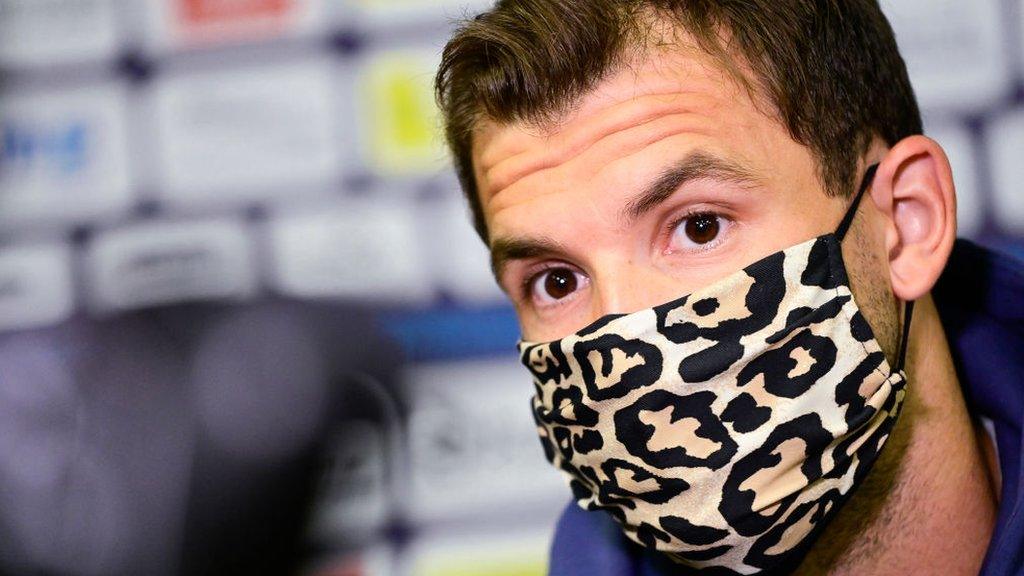
- Published6 October 2020

- Published26 November 2020
